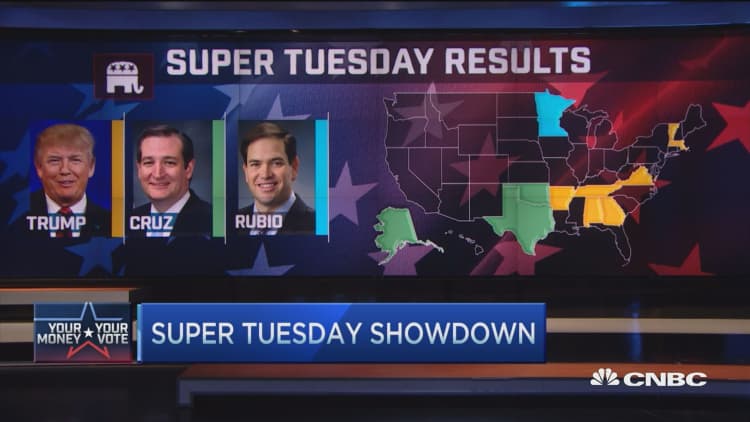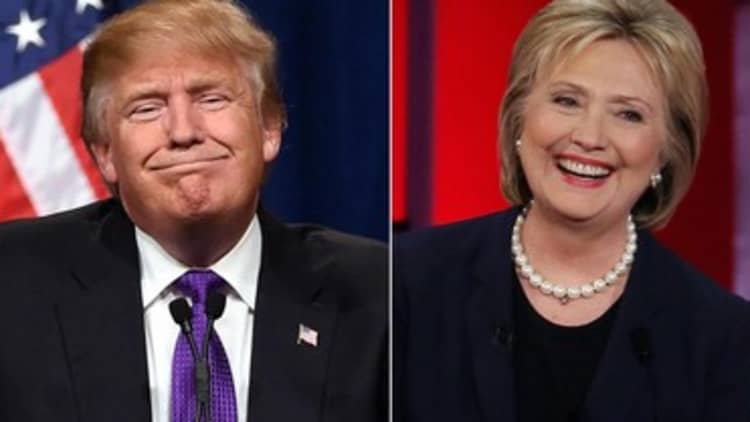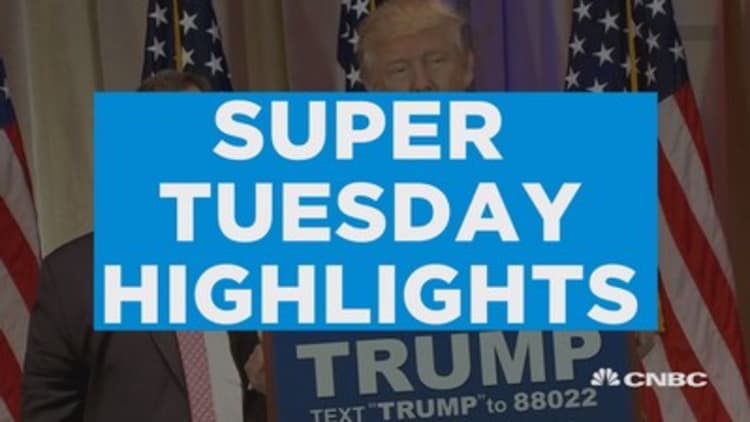


Competition for the Democratic and Republican presidential nominations hasn't ended. But it's close.
Sen. Bernie Sanders has a constituency and the cash to continue challenging Hillary Clinton for the Democratic nod. On Super Tuesday, he won four states — a primary in Oklahoma and caucuses in Minnesota and Colorado — as well as his home base of Vermont.
But he failed to top Clinton in Massachusetts, the most significant primary he contested Tuesday night. And across the South, from Texas to Virginia, she crushed him on the strength of overwhelming support from African-American and Latino voters who represent such a large portion of the modern Democratic primary.
His longshot hopes of wresting the nomination from her grasp rest on unexpected breakthrough wins that harvest large swaths of delegates and jolt the presumption of her dominance. Sanders did not get them on Tuesday night, and now must try in the large Midwestern battlegrounds of Michigan and Ohio where the race turns next.
Rivals to Republican front-runner Donald Trump likewise retain enough energy to keep fighting for a while. Ted Cruz beat Trump in three states including his home base of Texas — the single biggest Super Tuesday prize. Along with his lead-off victory in Iowa's caucuses — not to mention significant organizational and financial resources — that allows him to credibly cast himself as the most viable single remaining alternative.
At the same time, Marco Rubio finally grabbed his first victory by winning the Minnesota caucuses, and ran a close second to Trump in Virginia on the strength of late-deciding voters. That helps him maintain that establishment Republicans need to give him more time to take the fight to Trump and overcome his polling deficit in his home state of Florida before the winner-take-all primary there on March 15.
John Kasich ran second to Trump in Vermont. And his home base of Ohio — where he runs closer in polls to Trump than Rubio does in Florida — also holds a winner-take-all primary on March 15. Notwithstanding earlier talk of pressure for Kasich to abandon the race, party leaders now see advantages that he and Rubio fight on in hopes that victories by either, or both, can help deny Trump the majority of convention delegates he needs for the nomination.

Yet such a strategy against the candidate commanding plurality support among Republican voters nationally and winning most states poses risks of alienating the party rank-and-file just as deeply as establishment figures are alienated from Trump. The threat of a bitter and unbridgeable schism within the party grew larger on Super Tuesday.
Of more immediate significance than that: The prospect of a Clinton-Trump general election — which would be both unpredictable and negative — also grew larger on Super Tuesday.






